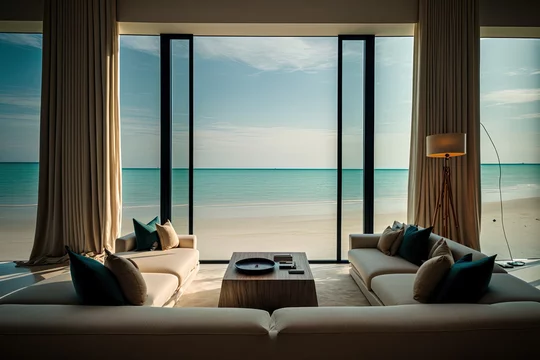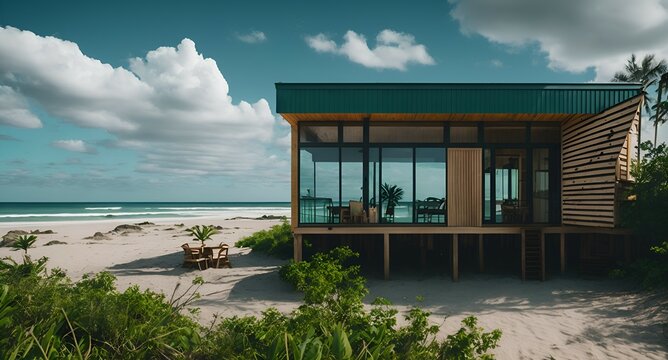CONSTRUCTION AND FOUNDATION
In general, beach houses can be threatened by hurricanes or storms. Therefore, the construction should be as stronger as possible. Otherwise, you are in danger. If the area has a high risk of flooding and/or a high potential for hurricanes, you should consider purchasing a home built on stilts. Consider the environmental impact: Beach areas can be susceptible to flooding, hurricanes, and other natural disasters, so consider any potential environmental risks before making a purchase.
What is the best material to build a beach house?
Concrete
Unlike other materials, which suffer accelerated degradation, concrete supports any type of natural conditions. It is one of the beach house construction options
Stainless steel
It is a material that is very resistant to different climate changes, especially for summer, which makes it durable over time.
Anti-saltpeter cement
This type of material effectively supports the high concentration of salt and minerals that the breeze possesses and humidity. Using anti-salt cement prevents damage
Porcelain tile for resistant & non-slip floors.
It is one of the best materials to build floors in a house on the beach, its surface is non-slip, resistant to humidity and high temperatures.
Roofs with protection from UV rays and temperatures
The terrace, being the area most exposed to the elements, is one of the places in a beach house that suffers the most damage. It is convenient to have a roof that prevents the entry of UV rays and provides thermal protection. Materials such as wood, tiles, and aluminum are the most recommended, as they resist humidity, wind force, and sun rays.
PROXIMITY TO WATER
For many, proximity to the water is one of the most important features when buying a beach house. Of course, you will have to weigh the pros and cons of living in front of the sea.
For example, while living near water is convenient and good for resale value, it will also likely increase flood risks. However, if the house is built with top-notch building materials, and you can afford any repairs or upkeep that goes along with it, then living near water may be the best investment.
Get insurance: Make sure you get an appropriate insurance policy to cover any potential risks associated with beachside living.

